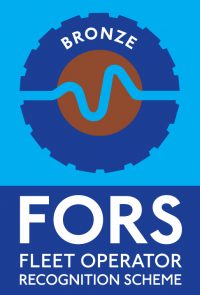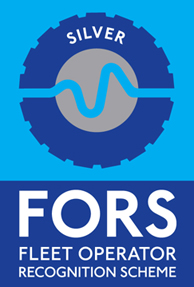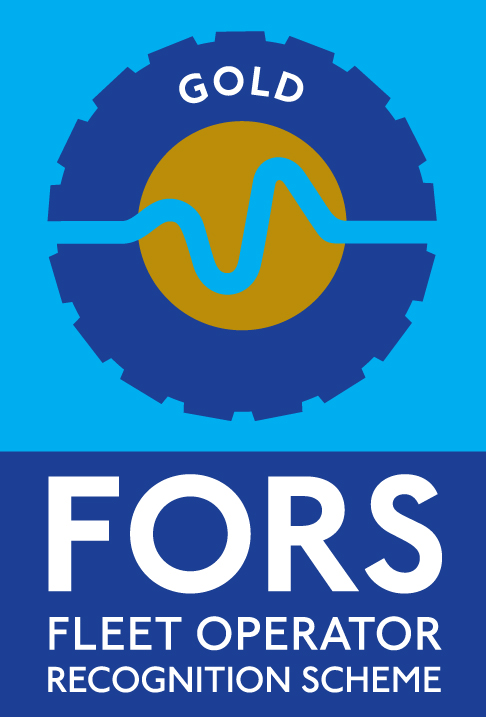Bus and coach guidance
What is FORS and why is it for you?
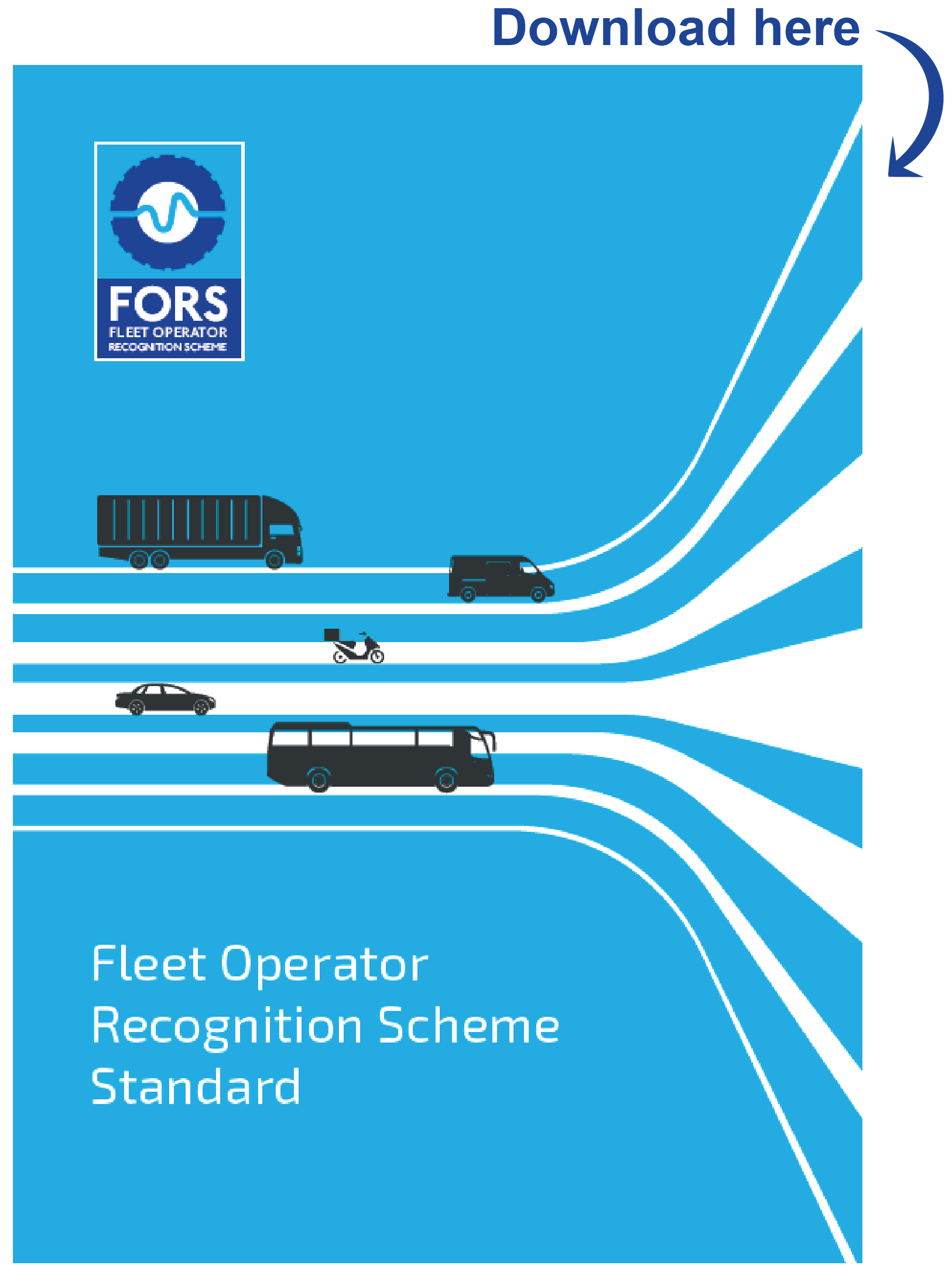
FORS is a voluntary accreditation scheme for fleet operators, which aims to raise the level of quality within fleet operations and to demonstrate which operators are achieving exemplary levels of best practice in safety, efficiency and environmental protection.
Becoming a FORS member can bring you peace of mind that your company is managing its work related road risk (WRRR) – and demonstrates to your customers and supply chain your commitment to exceeding the industry standard.
The FORS Standard sets out the requirements you need to meet in order to attain and maintain your accreditation. This should be read in conjunction with the FORS Accreditation Guide and FORS Terms and Conditions.
Five key benefits of FORS accreditation
1. STAND OUT FROM THE CROWD
If you were a transport buyer required to choose between two operators, who would you appoint? Would you select the one whose 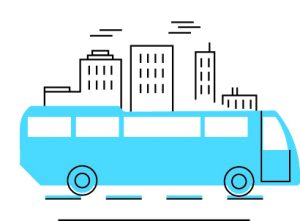 safety record and environmental practices you knew nothing of? Or the one whose FORS accreditation proved a commitment to good practice in all aspects of the business, including road safety, sustainability issues and many other aspects of corporate social responsibility? Who’s going to win the new business? It’s a no-brainer for the transport buyer.
safety record and environmental practices you knew nothing of? Or the one whose FORS accreditation proved a commitment to good practice in all aspects of the business, including road safety, sustainability issues and many other aspects of corporate social responsibility? Who’s going to win the new business? It’s a no-brainer for the transport buyer.
2. IMPROVE YOUR ROAD SAFETY RECORD
 Dedicated FORS Professional training equips your managers and drivers with the skills and knowledge to improve their work related road safety and to reduce the risk of collisions with other motor vehicles and, crucially, vulnerable road users.
Dedicated FORS Professional training equips your managers and drivers with the skills and knowledge to improve their work related road safety and to reduce the risk of collisions with other motor vehicles and, crucially, vulnerable road users.
Become FORS accredited and access safety specific tool, guides and training courses, that help you improve your work related road safety. FORS accreditation can lead to insurance premium reduction.
“We believe it is our duty to demonstrate that we operate over and above our legal requirements, while taking health and safety and the protection of vulnerable road users as paramount. Since joining FORS over those years we have not only grown the business significantly we have reduced all our insurance claims and developed strong relationships with the insurance industry. This in turn has reduced our insurance costs by 25% in the last five years and included ‘low claim rebates’ in the last four years. This is when other operators’ have seen increases in their premiums. So it makes sense in working closely with a good broker who will find you the right insurance company that will reward you for reducing risk. The insurance cost savings alone , can fund any investments in the business for your best practice commitment.” Jason Thornton, Associate Director, First Choice
3. REDUCE FUEL CONSUMPTION; INCREASE EFFICIENCY
FORS Professional provides classroom training and eLearning modules for managers and drivers covering environmental best  practice. FORS also provides best practice toolkits helping to put you one step ahead of the competition. Expert advice on the latest technologies and systems will provide tangible efficiencies. Dedicated driver training will promote defensive, more economic driving, leading to reduced fuel costs. FORS accreditation can lead to insurance premium reduction.
practice. FORS also provides best practice toolkits helping to put you one step ahead of the competition. Expert advice on the latest technologies and systems will provide tangible efficiencies. Dedicated driver training will promote defensive, more economic driving, leading to reduced fuel costs. FORS accreditation can lead to insurance premium reduction.
4. ENSURE COMPLIANCE
 Make use of FORS Affinity Partner products to meet your legal obligations and ensure you remain compliant with the FORS Standard. FORS Fleet Management System, powered by FleetCheck, delivers a comprehensive platform enabling complete vehicle, driver and organisation management. Operators have a duty-of-care by law to check their drivers’ competency and capability. FORS Driver Licence Checking Service, delivered in partnership with Licence Bureau Limited, provides preferential rates to members.
Make use of FORS Affinity Partner products to meet your legal obligations and ensure you remain compliant with the FORS Standard. FORS Fleet Management System, powered by FleetCheck, delivers a comprehensive platform enabling complete vehicle, driver and organisation management. Operators have a duty-of-care by law to check their drivers’ competency and capability. FORS Driver Licence Checking Service, delivered in partnership with Licence Bureau Limited, provides preferential rates to members.
5. GREATER INDUSTRY ‘KNOW HOW’ AND NETWORKING OPPORTUNITIES
With fortnightly eNews, monthly training eNews and a regular magazine, FORS members receive insider knowledge on how the  scheme is changing the industry and where potential opportunities lie for you. Through funded and discounted FORS Professional training, managers and drivers will have the chance to meet, swap tips and network with other industry professionals.
scheme is changing the industry and where potential opportunities lie for you. Through funded and discounted FORS Professional training, managers and drivers will have the chance to meet, swap tips and network with other industry professionals.
There are three levels of FORS accreditation
Bronze – good operators demonstrating lawfulness and best practice – this is the entry level of accreditation
Silver – quality operators committing to improving safety, environmental impact and efficiency – this is the intermediate level of accreditation
The Standard and specific requirements
The FORS Standard sets out the requirements you need to meet in order to attain and maintain your accreditation. There are four key areas to the FORS Standard:
Management
Vehicles
Drivers
Operations
Bus and coach operators must meet all of the requirements of the FORS Standard relevant to their level of accreditation; however, there are some specific requirements for bus and coach operators:
Requirement
To load vehicles and trailers safely and within the legal limits.
Purpose
To ensure that luggage and vehicle equipment are restrained and within the vehicle weight limits so that they do not endanger the driver, any passengers or other road users.
Demonstration
FORS operators shall have a policy, equipment, training and documentation in place for safe stowage. The policy shall include:
- Safe stowage of passenger luggage and ancillary vehicle items
- Compliance with stowage documentation such as risk assessments and method statements
- Correct trailer types for any luggage or cargo to be carried
- Safe coupling of trailers to towing vehicles
Where relevant, the stowage documentation shall include:
- Vehicle gross, and axle weight limits
- Maximum passenger carrying capacity
- Luggage distribution and restraint in the stowage area
- Luggage distribution and restraint on-board including access to emergency exits
- Location and restraint of ancillary equipment
- Location and restraint of accessibility equipment
- Any other special precautions that are necessary
The correct equipment shall be issued to maintain safe loads.
Maximum passenger and luggage weight limits should be considered.
If the overall vehicle height is 9 feet 10 inches (three metres) or above, a height indicator shall be displayed in the cab showing the overall height of the vehicle and load in feet and inches.
Documentation, records, risk assessments and data relevant to stowage shall be:
- Documented and reviewed in accordance with requirement M1
- Retained in accordance with requirement M2
- Communicated in accordance with requirement M5
- Included in the health and safety policy in accordance with requirement M8
- Included in Professional Development Plans in accordance with requirement D4
To fit larger vehicles with safety equipment that helps protect vulnerable road users.
Demonstration
FORS operators shall ensure that HGVs and vehicles designed to carry more than 16 passengers are fitted with blind spot warning signage.
Blind spot warning signage shall be fitted:
- Prominently to the rear of the vehicle
- To visually warn other road users of the near-side close proximity blind spot hazard
- So as not to cause offence to other road users
- So they are clearly visible to other road users
Blind spot warning signage should not give instruction or direction to other road users.
Safety equipment designed to reduce the risk of close-proximity collisions involving vulnerable road users such as side-under-run protection and Class V and VI close proximity mirrors are not a requirement for operators of vehicles designed to carry more than 16 passengers.
FORS Professional development for PCV drivers
The FORS mandatory driver training listed in Annex 1.2 is required in order to meet FORS Bronze requirements D4 and FORS Silver requirements S5. At Silver, both Bronze and Silver mandatory training requirements apply. At Gold, Bronze, Silver and Gold mandatory training requirements apply. For drivers of more than one vehicle type, FORS operators must meet the FORS mandatory training requirements for all relevant vehicle types.
PCV drivers must complete the following training:
- One FORS Professional safety eLearning module – every 12 months
Or
- FORS Approved safety training course or eLearning module – every 12 months
Plus one of the following:
- FORS Professional Security and Counter Terrorism eLearning module – every 24 months
Or
- FORS Approved counter terrorism awareness training course or eLearning module – every 24 months
- FORS Professional Safe Urban Driving (SUD) training course – every 5 years
Or
- FORS Approved WRRR training course
- FORS Approved environmental awareness training course – every 5 years
Training packages
If an operator or training provider has training packages that would help to raise the standards of bus and coach operators, then please contact FORS. Any suitable training may be approved and accepted by FORS as a way of demonstrating compliance with the relevant FORS requirement.
Audits
The purpose of the Bronze audit is to make sure that the operator FORS accredits meets specific exacting standards. The audit process is about providing evidence of systems, procedures and documentation that demonstrate your company can meet the required standard of entry into FORS Bronze accreditation. To ensure that you are maintaining the FORS Standard, on-site re-approval audits are conducted annually for Bronze, every two years for Silver and every two years for Gold. The Silver and Gold re-approval audits are submitted online annually.
Passing your audit and becoming FORS accredited not only means you are contributing to creating and maintaining higher standards within the transport industry but your business will benefit from being safer and more fuel efficient.
Support for undertaking your audit can be found in the FORS audit toolkit.
How much does it cost?
Your FORS fee is made up of the annual subscription fee (based on your fleet size) and an audit fee (based on the number of operating centres accredited. Use the Fees link to access more details.
Frequently Asked Questions
Yes, the FORS Standard includes PCVs in its effort to increase levels of best practice across the whole industry. This means that if the PCVs in your fleet are used for servicing and delivery, they must be included in your FORS scope of accreditation. So with effect from 14 January 2019, existing members will need to update FORS with fleet details PRIOR to re-approval audit and include any PCVs if appropriate. New members will need to declare PCVs from the onset when registering with FORS.
It is NOT a FORS requirement to display your FORS ID graphic on your vehicles, however, you might still be required to do it to meet specific contractual requirements.
Make sure that you and your team meet the required FORS accreditation requirements and driver best practice across your organisation through the comprehensive FORS Professional range of classroom and eLearning courses, many of which are free of charge. The extensive training programme has been devised specifically for FORS to improve skill levels and performance across your organisation. Delivered by industry experts it provides the guidance you need to achieve FORS Bronze, Silver and Gold. This training includes FORS Practitioner, a series of 10 highly informative and insightful workshops that cover all aspects of fleet management. Designed to assist fleet managers in their busy everyday roles, the workshops provide the tools you need to reduce road risk and environmental impact, boost the performance of your transport operation and help meet the requirements of the FORS Standard.
Find out more about training
Find out more about toolkits
How to apply
If you would like to join FORS, you must register by completing the FORS application form. It can be accessed via the FORS website or a hard copy can be requested by email from: [email protected]
At registration and on each anniversary you will need to pay the relevant annual membership fee, details of which are available on the FORS membership and audit fees page.
Once you have completed your application form, you have 90 days to request, undertake and pass your Bronze audit.
How do I find out more about FORS?
Call the FORS Helpline on 08448 09 09 44 (08.30 – 17.00 Monday to Friday) or if you have specific question email us at [email protected]

